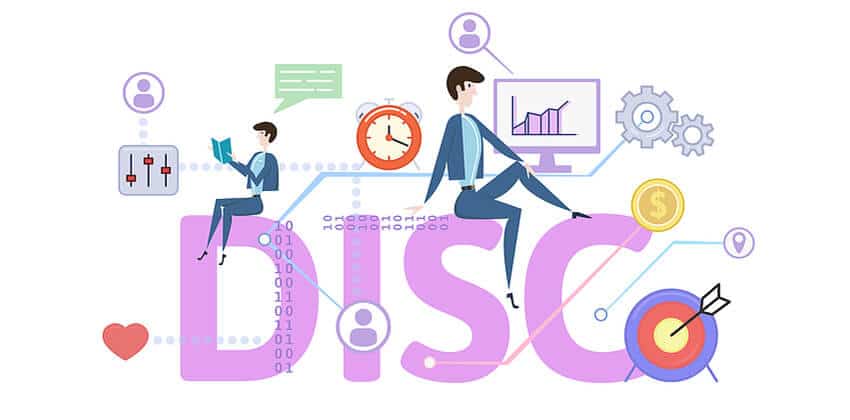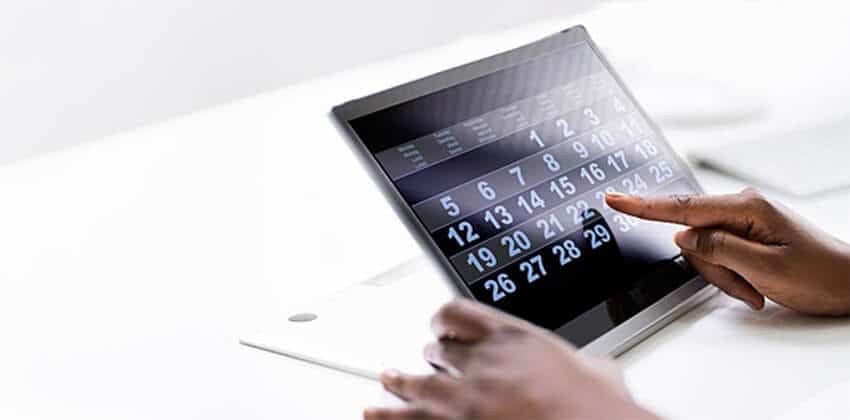
In the first article of this series, I talked about self-assessment or self-reflection, and why it is so important to the career transition process. In this article, I will feature one assessment in particular that I find extremely helpful to my clients as they begin to think about new career options and career reinvention. This assessment is called the DISC Behavioral Profile, which looks at your behavioral and communication styles, your strengths and weaknesses, and the ideal work environment for you.
DISC Behavioral Profile
Many people, not familiar with assessments, confuse DISC with Myers-Briggs and other personality-type assessments. While Myers-Briggs can be helpful in recognizing your personality style, I think the DISC assessment provides much more “actionable data and information” for individuals in transition. It also is extremely helpful in getting you to see how you can “adapt” your primary style for increased communication success in your current workplace, even if you plan on leaving at some point.
The underlying philosophy of the DISC assessment and approach is that understanding yourself is the first step to understanding others.
The letters in the acronym DISC characterize four distinct behavioral styles. Each style has its own set of strengths and weaknesses. Once you are aware of your style, you will become more cognizant of your behavior and more inclined to adapt your behavioral style to those around you. Additionally, if you know your primary behavioral style, you will be more “in tune” to what makes an ideal environment for you when contemplating a career transition.
In a nutshell, the letters D, I, S, and C will reveal two key attributes. First, whether you prefer to deal with tasks or people; and second, whether you are primarily extroverted and fast paced or introverted and slower paced in professional settings. Believe it or not, these identifiers can put you on the path to improving your communication skills, accessing job/industry preferences, ideal work environments, and determining how to best use your strengths while managing your weaknesses.
Below is a quick overview of the four style types:
D = Dominance (assertive, control) Task/Extroverted
– “I am what I achieve.”
People who score high on the “D” style tend to be very active in dealing with problems and challenges in the workplace. People with a high “D” profile can be demanding, forceful, egocentric, strong-willed, and driving.
I = Influence (social, communication) People/Extroverted
– “I am what people see.”
People who score high on the “I” profile tend to influence others through talking and activity and tend to be emotional. They are described as being convincing, magnetic, political, enthusiastic, persuasive, warm, demonstrative, trusting, and optimistic.
S = Steadiness (patience, thoughtfulness) People/Introverted
– “I am what I contribute.”
People who score high on the “S” dimension like a steady pace and security, and do not like sudden change and variety. They tend to be calm, relaxed, patient, possessive, predictable, deliberate, stable, consistent, and tend to be unemotional and poker-faced.
C = Compliance (caution, conscientious) Task/Introverted
– “I am what I perfect.”
People who score high on the “C” dimension adhere to rules, regulations, and structure. They like to do quality work and do it right the first time. High C people are careful, cautious, exacting, neat, systematic, diplomatic, accurate, and tactful.
Typically people are a combination of styles, but most likely one style will still prevail. Although the DISC assessment only takes a few minutes to complete, the report (interpreted by a trained career coach) provides an abundance of tailored information about your behavioral style, your ideal work environment, and how you may be perceived by those around you. Once you have some essential descriptors to work with, it will be much easier for you to identify another person’s style and flex your behaviors accordingly, to make the best connection and interaction possible.
Here are a few benefits that you can derive from taking a DISC assessment.
- Self-Awareness – DISC is a great tool that offers an objective perspective on how others may view your behavior and communication style (based on your answers!). You can identify and give a “name” to why you may be in conflict with those around you.
- Communication – Learn how to give and communicate information to help strengthen your relationships. The way YOU receive information may not be the best way for OTHERS to receive it. DISC offers a clear description on how each style best digests information.
- Stress Management – Understanding the various styles, in comparison to your own style, will allow you to demonstrate tolerance and impulse control. Knowing when to adapt your behavior can help to smooth over a tough situation.
- Self-Motivation – By identifying your style, you can become active in finding the best solutions for you. For instance, if you are dissatisfied with your current profession, the DISC assessment may shed some light on a more appealing and appropriate career path.
- Career Management/Career Transition – Once you know your style and the work environment in which you thrive, you will be able to make better career decisions about the ideal environment for you – for example, which job function is the best for you, the pace of the industry and company, and ideal company culture.
Remember, one style is not better than another – they are just different. Try not to label people and make sure you analyze each situation based on its merits.
DISC reports are most helpful when they are interpreted by a career professional. If you have never done a DISC assessment, it is a worthwhile investment to improving your communication skills and to managing your career in the right direction. You never know what doors it will open until you give it a shot!
 About the author…
About the author…
Job-Hunt’s Career Change Expert, Randi Bussin, founder and president of Aspire!, is a career coach and counselor with more than 25 years of business, entrepreneurial, and career counseling experience, including DISC assessments. Randi has experienced several major career transitions (from corporate to small business owner to career counselor to coach) and personally understands the effort and commitment involved. She has appeared on public television’s “Job Doctor,” and is a frequent contributor to Bridgestar’s Leadership Matters newsletter, The Ladders job-search Web site (www.theladders.com) and her own blog, which offers advice on career transition, job search, and labor market trends. Follow Randi on Twitter @Aspire4Success.
More about this author…
Don't forget to share this article with friends!




